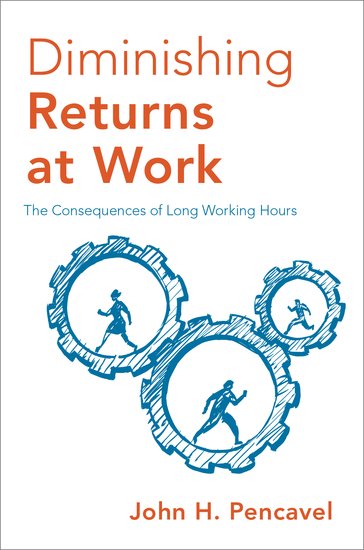
The Consequences of Long Working Hours

The Consequences of Long Working Hours

Diminishing Returns at Work focuses on working hours - in the past and in the present, in America and in Britain. John Pencavel illustrates the proportional relationship between hours of work and outcomes such as production and health.
Levertijd op aanvraag
The relationship between the number of hours worked and productivity has long fascinated economists and management. It is a central component of the production function that translates inputs to outputs. While increasing the number of hours someone works may increase output, this incisive book demonstrates that there are diminishing returns to long working hours.
John Pencavel, of Stanford University, provides an overview of how the length of working hours evolved from the 19th century to today and how the number of working hours affects work performance and other outcomes, including health, well-being, and wages. Diminishing Returns at Work provides a brief history of working hours both in the United States and Britain, including the influence of trade unions pushing for shorter hours of work, the tension with employers who resisted reducing hours, and the influence of legislation and custom. Pencavel discusses various conceptual frameworks for specifying production functions that measure the relationship between inputs and outputs and develops an alternative approach to estimate actual relationships through a reevaluation of classic studies, including the productivity of munitions workers in Britain during the First and Second World Wars, a variety of industries in the United States in the Second World War, and plywood mills in Washington during the 1980s. The book also explores the influence of working hours on the incidence of sickness and injuries and the associations between hours of work and wages.
The declining effectiveness of long hours is manifested not only in marketable output but also in a rising probability of ill-health and accidents, and evidence of this has been found both for blue-collar workers and for white-collar workers. In short, shorter hours of work might benefit both firms and workers.